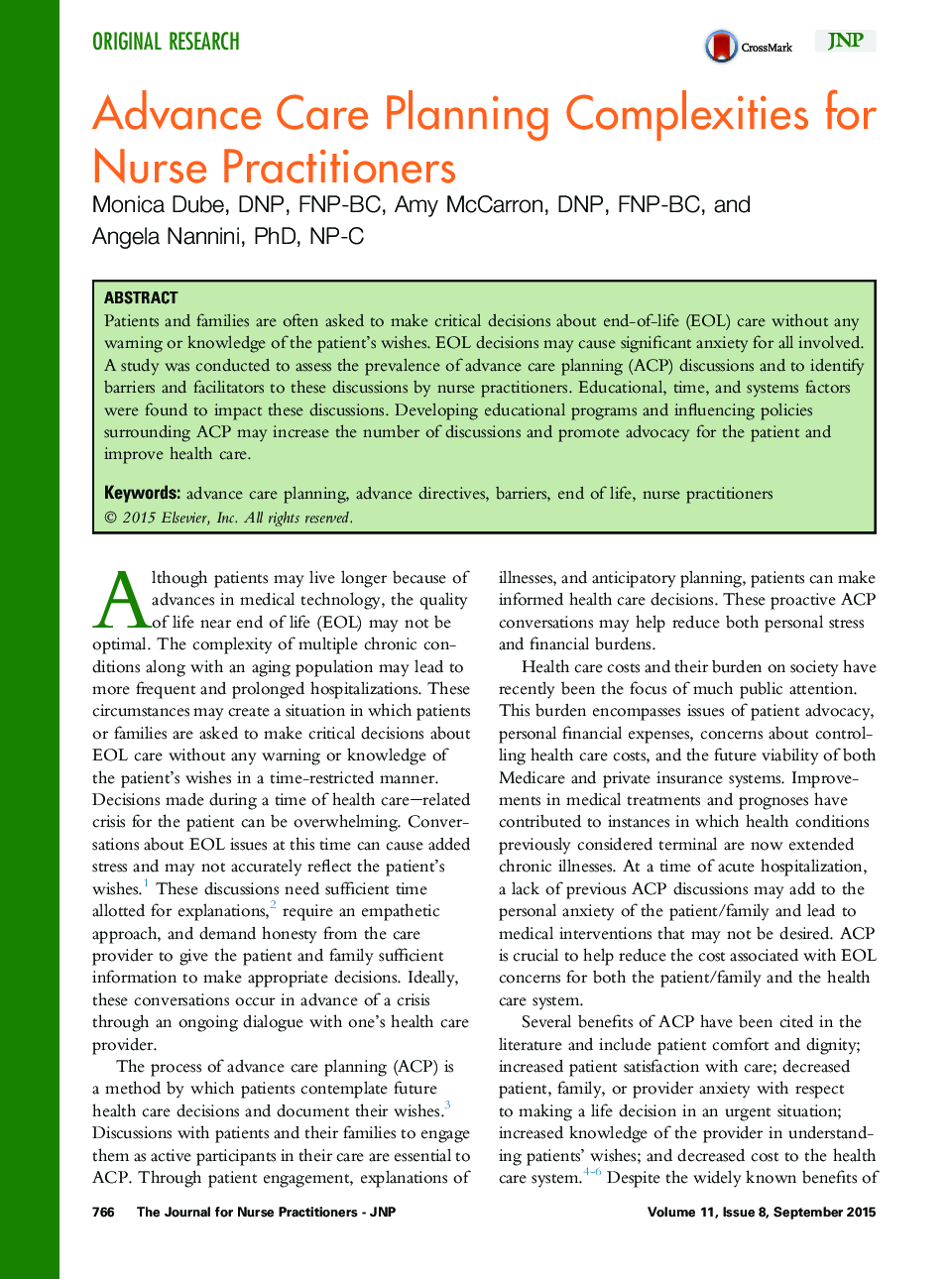| Article ID | Journal | Published Year | Pages | File Type |
|---|---|---|---|---|
| 2663099 | The Journal for Nurse Practitioners | 2015 | 8 Pages |
1.Lack of time and education are barriers to advance care planning (ACP) discussions.2.Organization procedures and processes are barriers to ACP discussions.3.Despite barriers, 65% of nurse practitioners are sometimes or often having ACP discussions.4.Addressing both provider and patient factors may increase the frequency of ACP discussions.5.Nurse practitioners are in a position to advocate for patient and health care system at end of life.
Patients and families are often asked to make critical decisions about end-of-life (EOL) care without any warning or knowledge of the patient's wishes. EOL decisions may cause significant anxiety for all involved. A study was conducted to assess the prevalence of advance care planning (ACP) discussions and to identify barriers and facilitators to these discussions by nurse practitioners. Educational, time, and systems factors were found to impact these discussions. Developing educational programs and influencing policies surrounding ACP may increase the number of discussions and promote advocacy for the patient and improve health care.
